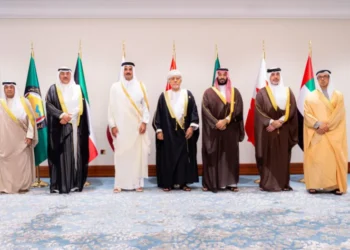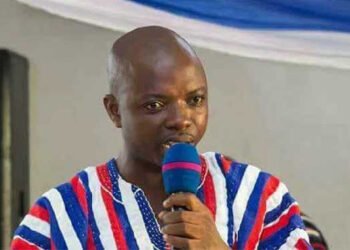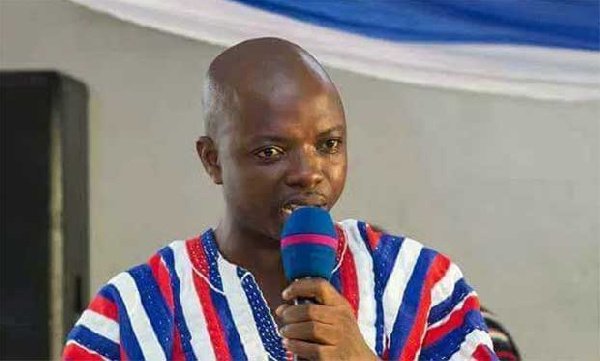The Attorney-General, Dr. Dominic Ayine, has accused the Ghana Bar Association (GBA) of abandoning its neutral and professional role by allegedly siding with partisan political interests in recent national debates.
Speaking at the GBA’s annual conference in Wa on Monday, September 15, 2025, Dr. Ayine expressed deep concern over what he described as the association’s inconsistent advocacy and selective engagement with constitutional matters.
According to him, the GBA’s recent actions have cast doubt on its commitment to safeguarding the integrity of Ghana’s democracy and upholding the Constitution.
Dr. Ayine stressed the importance of the association’s allegiance to the state rather than transient political factions. He stated that “we must remember that our allegiance is first and foremost to the Constitution and this republic, not to transient political interests.”
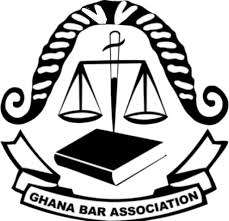
“Our republic has tested and continues to test the resilience of its democratic institutions. In doing this, the Bar has played a crucial role in assisting the Supreme Court to interpret and enforce the Constitution.”
Dr. Dominic Ayine
However, he lamented that outside the courtroom, the Bar’s advocacy has been inconsistent, which he believes undermines its credibility, “bringing into question its adherence to principles.”
Attorney-General Questions GBA’s Silence on Key Issues
Dr. Ayine accused the GBA of failing to demonstrate fairness in its positions on national matters, arguing that the association has sometimes appeared to echo the voice of the opposition rather than acting as an impartial body.
According to him, this shift has made the Bar “self-serving”, prioritizing its own interests above those of the legal profession and the Ghanaian people.
To illustrate his concerns, the Attorney-General cited several past events where the GBA’s silence or selective involvement raised questions about its neutrality.
He pointed to the removal of former Electoral Commission Chairperson, Mrs. Charlotte Osei, contrasting the Bar’s muted response then with its loud opposition to the current process seeking the removal of Chief Justice Gertrude Torkonoo.
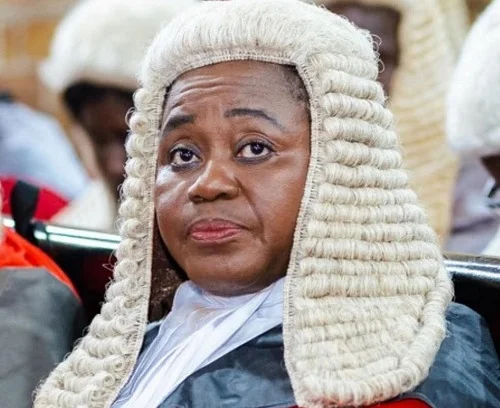
He reminded the gathering of an earlier case involving the Commission on Human Rights and Administrative Justice (CHRAJ).
“When in 2015 an Article 146 petition was received by the Chief Justice in relation to the former Chairperson of the Commission on Human Rights and Administrative Justice, Madame Loretta Lampe, the Bar failed to speak out about the process.”
Dr. Dominic Ayine
Dr. Ayine also recalled events surrounding the 2016 election period when the then-opposition New Patriotic Party (NPP) took the Electoral Commission to court several times over issues with the voter identification system, leading to the well-known Abu Ramadan cases.
He pointed out that soon after the NPP assumed power in 2017, an Article 146 petition was filed to remove Electoral Commission Chairperson Mrs. Charlotte Osei and her deputies from office, yet the Ghana Bar Association (GBA) remained silent and did not raise any concerns about whether due process was being followed.
Selective Advocacy Raises Questions of Bias
The Attorney-General stressed that the GBA’s recent vocal stance on certain matters has sparked serious questions about its impartiality.
He noted that the association became outspoken only when petitions were filed under the same constitutional procedures seeking the removal of former Chief Justice Mrs. Gertrude Torkonoo from office.
He questioned what had changed between these three high-profile cases, stressing that all involved women of exceptional reputation who occupied critical constitutional offices.
“The honest question we have to ask ourselves is, what changed? The three petitions concerned officeholders of critical constitutional bodies. The independence of these institutions is guaranteed by the Constitution, and all three occupants were women of repute and members of our noble profession.
“Yet, the Bar found its voice only in relation to the third petition. Coincidentally, the voice of the Bar amplified the voice of the opposition.”
Dr. Dominic Ayine
By selectively choosing when to speak, he argued, the GBA risks eroding public trust in its ability to serve as a nonpartisan guardian of Ghana’s democratic framework.

Accordingly, Dr. Ayine urged the GBA to return to its foundational principles and reclaim its reputation as an impartial and professional body.
He emphasized that the association must rise above political entanglements and focus on defending the Constitution and promoting justice for all Ghanaians.
According to him, the credibility of Ghana’s legal and democratic institutions depends on consistent advocacy, not selective outrage.
If the GBA continues on its current path, he warned, it could damage not only its own standing but also the integrity of the legal profession.
The Attorney-General’s remarks come at a time of heightened political tension in the country, with the opposition NPP accusing the ruling NDC of manipulating state institutions to suppress dissent.
By challenging the GBA to act with neutrality, Dr. Ayine has added another dimension to the ongoing debate about the role of professional associations in shaping Ghana’s democratic future.
As Ghana heads into a critical period of governance and reform, the actions of the GBA will likely come under greater scrutiny.
Its response to Dr. Ayine’s challenge may determine whether it remains a respected voice in national affairs or continues to be perceived as politically aligned.


